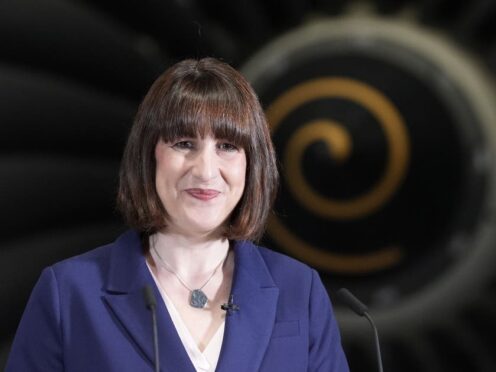
Conservative Leader of the House of Commons Penny Mordaunt claimed that Labour plans to bring in several “new taxes”.
Speaking at a debate on the BBC on Friday June 7, Ms Mordaunt said: “We’ve heard overnight about 12 new taxes that Labour are going to bring in.”
Her claim echoed several social media posts from the Conservative Party that made the same claim.
Evaluation
The assertion that Labour has a dozen new taxes planned if it forms the next government comes from a newspaper report that does not explicitly refer to new taxation.
There are also no official Labour Party announcements saying that it would create 12 new taxes.
The facts
The claim of “12 new taxes” is attributed by the Conservative Party to an anonymous Labour source in an article published on the Guardian website. They suggest that Labour shadow chancellor Rachel Reeves has “between 10 and 12 measures… all of which will raise small pots of money”.
These alleged revenue-raising ideas have not been confirmed or denied by Labour and do not necessarily involve the creation or application of any new taxes.
The Institute for Fiscal Studies says “Non-tax revenues include, among other things, income received by government from public corporations (for example, from local authority housing) and interest payments on government assets (such as student loans).”
Although Labour has yet to publish its manifesto, the first of its five “missions” laid out for governance is focused on economic growth.
The party has pledged to “keep taxes, inflation and mortgages as low as possible” — which does not completely rule out increasing taxes, nor creating new ones.
In rejecting Rishi Sunak’s claim of a £2,094 tax hike under Labour, the party announced it “will not raise taxes on working people”, specifying that income tax, national insurance and VAT would not be increased by a Labour government.
On the BBC’s Question Time programme on June 6, shadow justice secretary Shabana Mahmood reiterated this pledge, after being asked whether Labour would be “adding 20% tax to healthcare, along with schools”.
She said: “We are not raising any taxes – income tax, VAT, or indeed national insurance – the only VAT change we’re making is for private schools.” (The party had previously announced plans to “end tax breaks for private schools” – where fees are currently exempt from VAT – in a bid to fund teacher recruitment.)
Later in the programme, Ms Mahmood also mentioned Labour’s plan for “making tax changes so that oil and gas companies, for example, pay more in a windfall tax”.
The party’s website describes the implementation of this tax as “time-limited“.
A scheme to raise money from the profits of such companies – the Energy Profits Levy – “will remain in place until 31 March 2028” under current legislation.
Links
Post on X by @Conservatives (archived)
“Starmer’s tax burglary” graphic from the Conservative Party (archived)
Piggybank graphic by the Conservative Party (archived)
Rachel Reeves under Labour pressure to raise capital gains tax to revive public services | Labour | The Guardian (archived)
IFS – Where does the government get its money? (archived)
Get Britain building again — The Labour Party (archived)
Original post on X by @UKLabour (archived post and video)
BBC iPlayer – Question Time – 2024: 06/06/2024
Break down barriers to opportunity – The Labour Party (archived)
Switch on Great British Energy – The Labour Party (archived)
Energy Profits Levy: Energy Security Investment Mechanism – technical note – Gov.uk (archived)

Enjoy the convenience of having The Sunday Post delivered as a digital ePaper straight to your smartphone, tablet or computer.
Subscribe for only £5.49 a month and enjoy all the benefits of the printed paper as a digital replica.
Subscribe